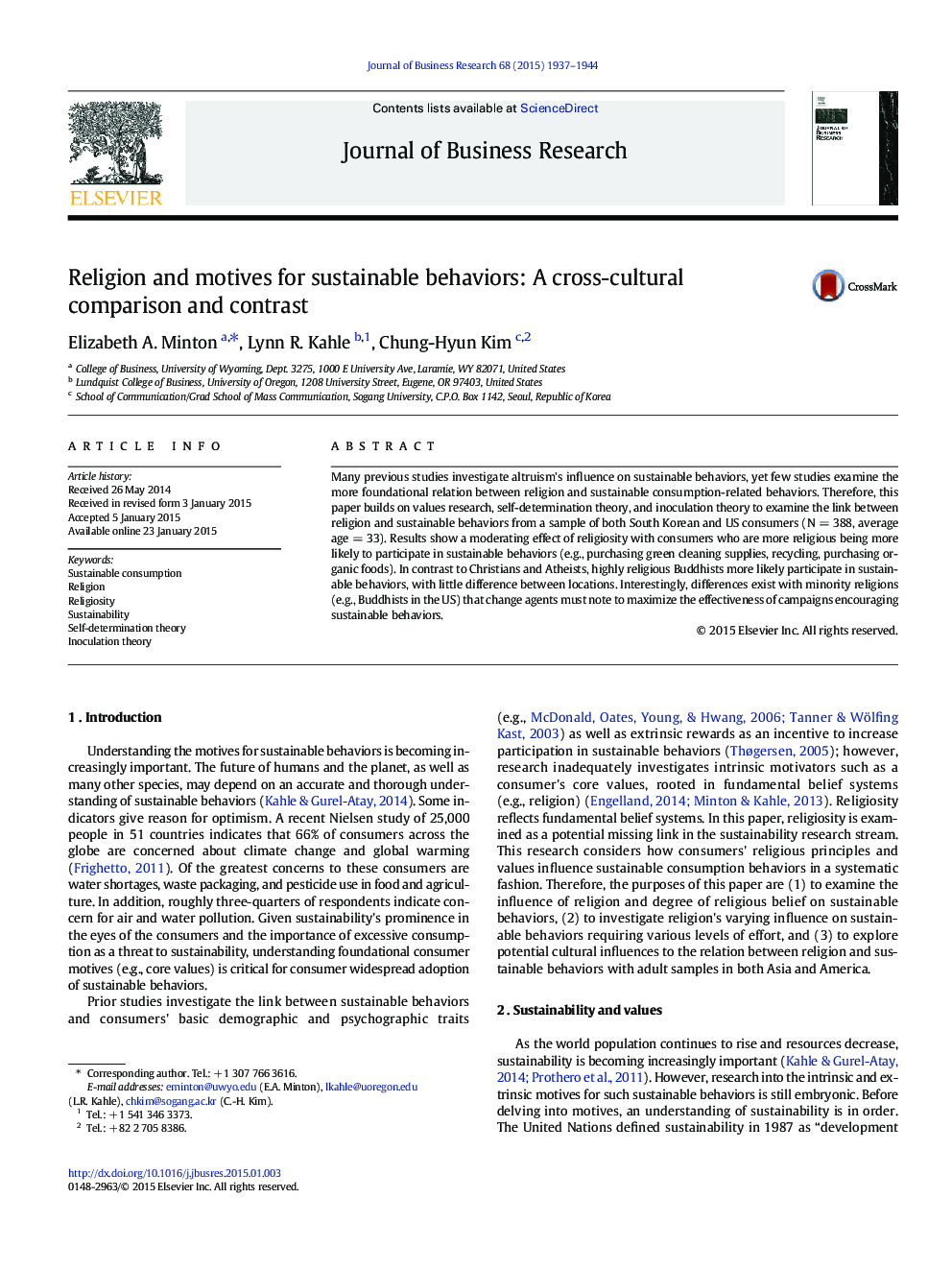| Article ID | Journal | Published Year | Pages | File Type |
|---|---|---|---|---|
| 1017152 | Journal of Business Research | 2015 | 8 Pages |
•A consumer's religious value system influences their sustainable behaviors.•Buddhists are more sustainable than Christians and Atheists.•The influence of religion on sustainable behaviors is consistent across cultures.•Buddhists as a minority (US) are more sustainable than as a majority (S. Korea).
Many previous studies investigate altruism's influence on sustainable behaviors, yet few studies examine the more foundational relation between religion and sustainable consumption-related behaviors. Therefore, this paper builds on values research, self-determination theory, and inoculation theory to examine the link between religion and sustainable behaviors from a sample of both South Korean and US consumers (N = 388, average age = 33). Results show a moderating effect of religiosity with consumers who are more religious being more likely to participate in sustainable behaviors (e.g., purchasing green cleaning supplies, recycling, purchasing organic foods). In contrast to Christians and Atheists, highly religious Buddhists more likely participate in sustainable behaviors, with little difference between locations. Interestingly, differences exist with minority religions (e.g., Buddhists in the US) that change agents must note to maximize the effectiveness of campaigns encouraging sustainable behaviors.
